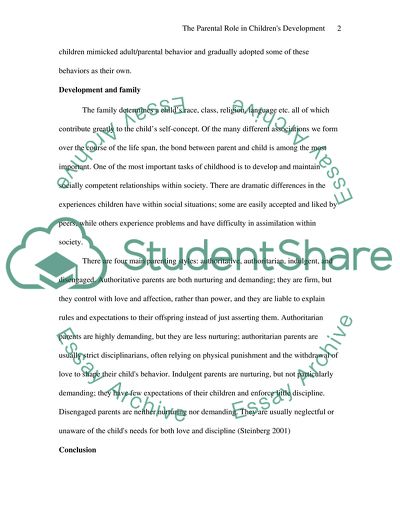The Parental Role in Children's Development Article. Retrieved from https://studentshare.org/psychology/1556016-the-parental-role-in-childrens-development
The Parental Role in Children'S Development Article. https://studentshare.org/psychology/1556016-the-parental-role-in-childrens-development.


